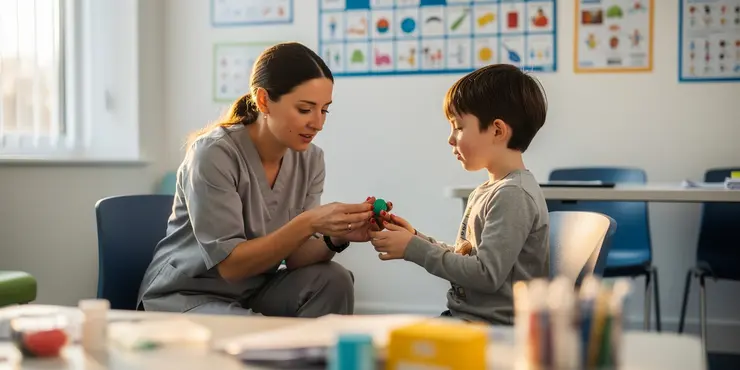
Find Help
More Items From Ergsy search
-

What is Autism?
Relevance: 100%
-
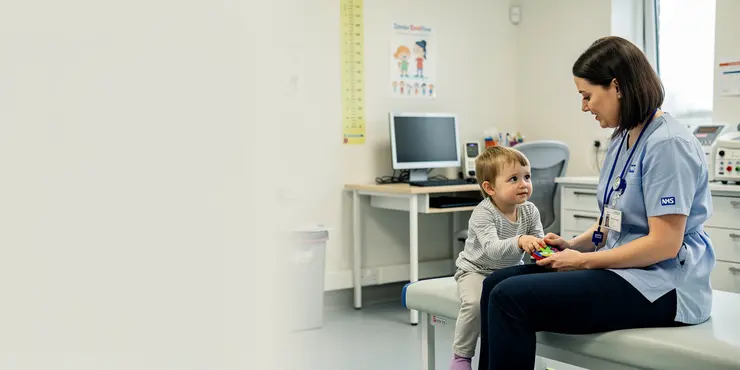
Is there an autism test?
Relevance: 100%
-
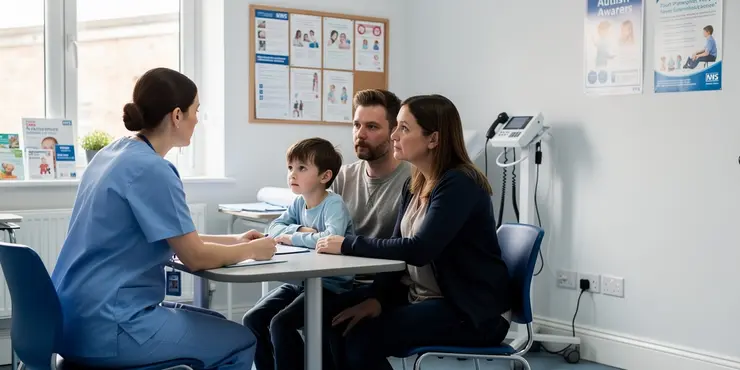
Is there a genetic component to autism?
Relevance: 96%
-
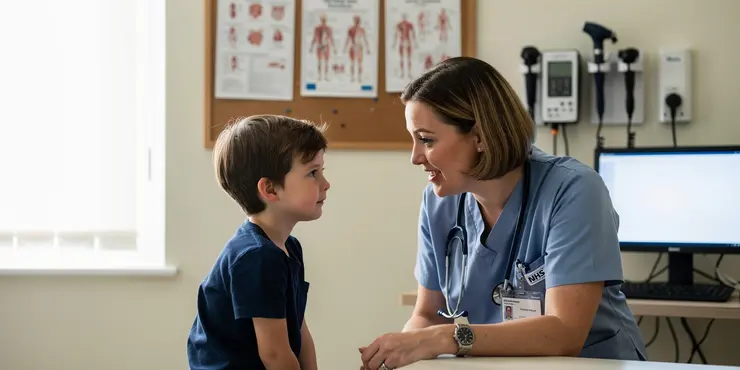
How prevalent is autism?
Relevance: 96%
-
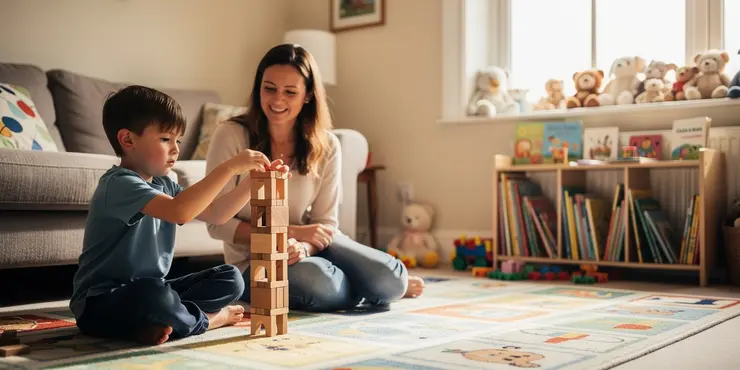
What is the autism spectrum?
Relevance: 96%
-
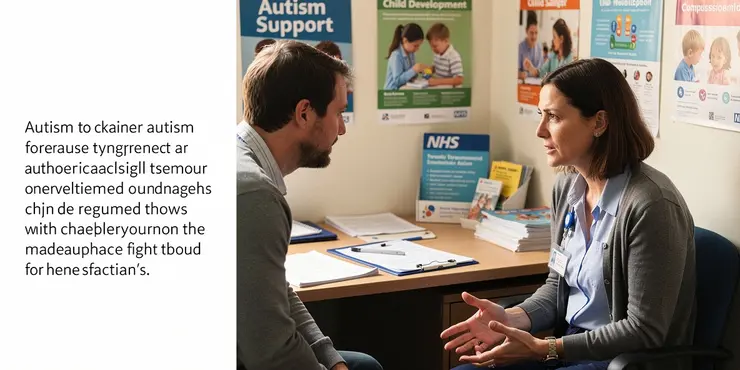
What causes autism?
Relevance: 95%
-
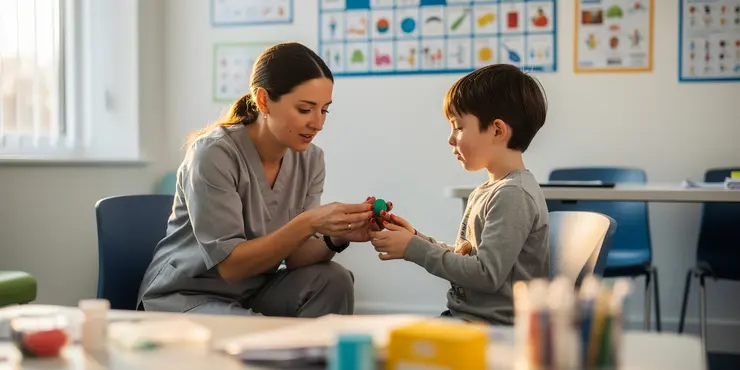
Can autism be cured?
Relevance: 95%
-
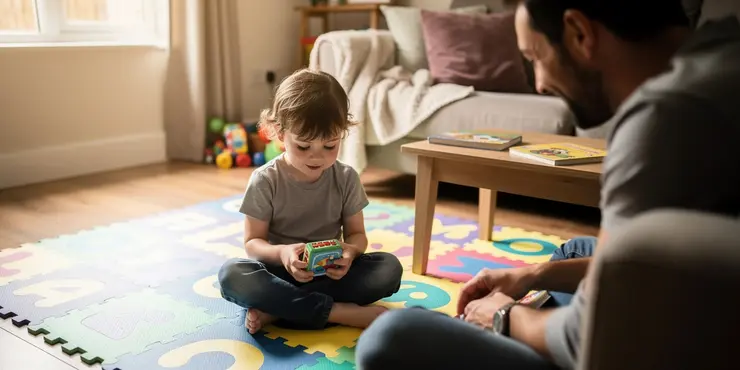
What are the signs of autism?
Relevance: 94%
-
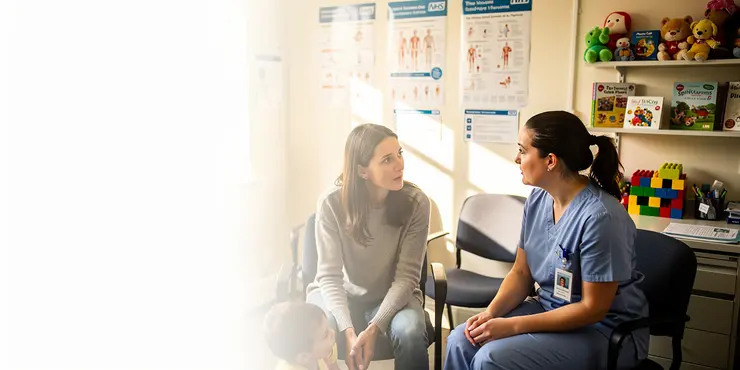
How is autism diagnosed?
Relevance: 94%
-
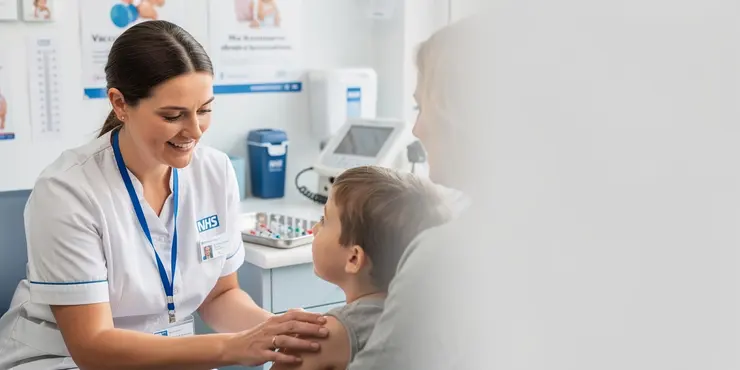
Are vaccines linked to autism?
Relevance: 93%
-
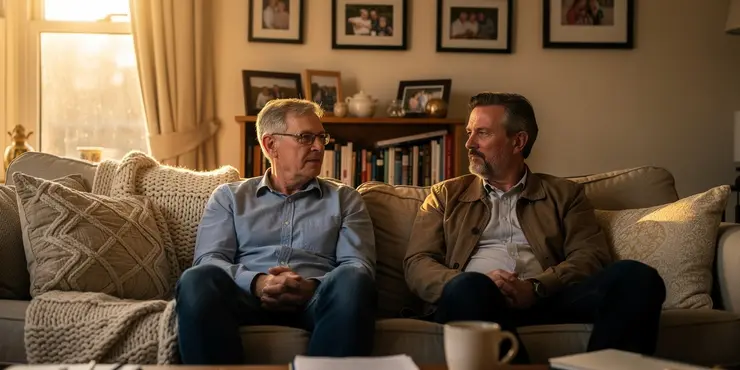
Can adults have autism?
Relevance: 92%
-
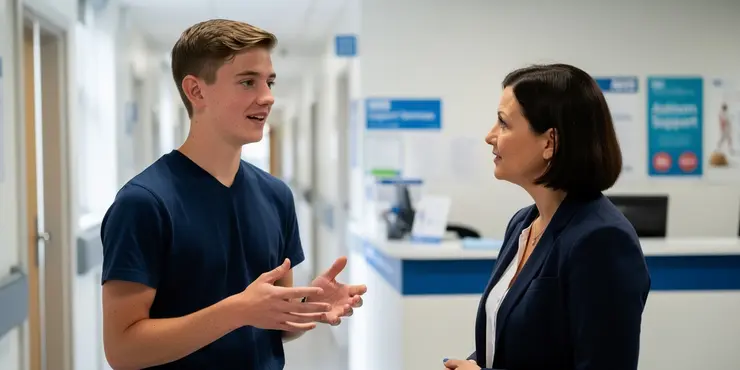
Autism: Graeme's story | NHS
Relevance: 92%
-
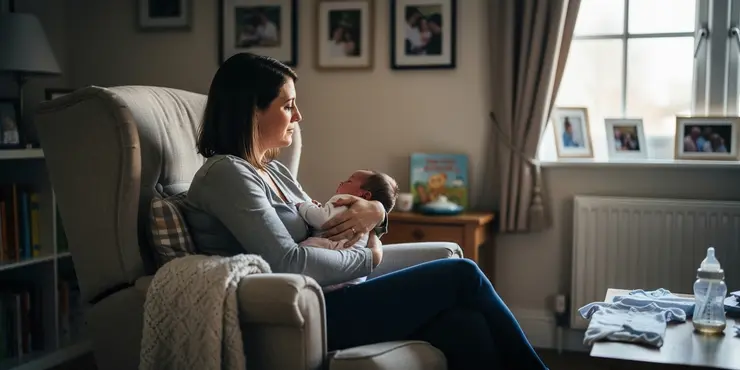
Is paracetamol linked to autism?
Relevance: 92%
-
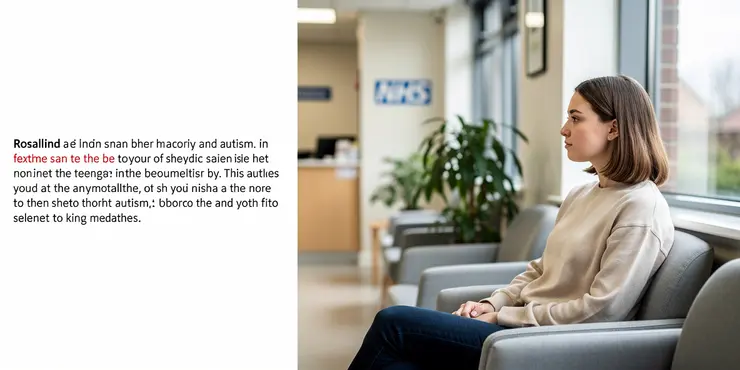
Autism - My Story - Rosalind | NHS
Relevance: 91%
-
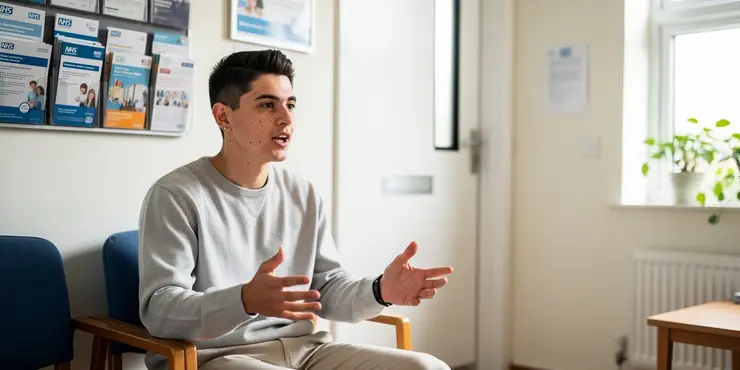
Autism - My Story - Adrian | NHS
Relevance: 90%
-
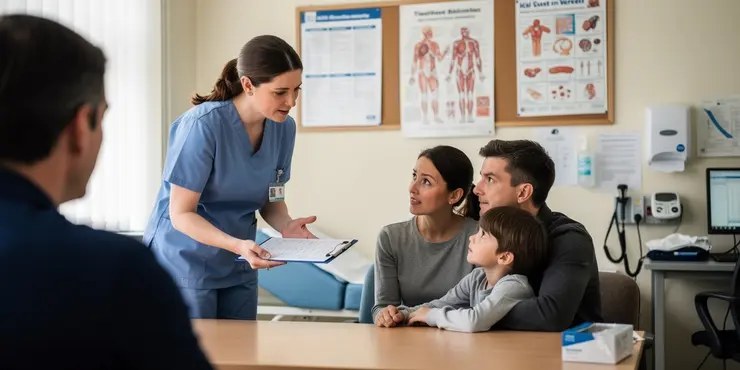
What can cause autism, if not paracetamol?
Relevance: 89%
-

Is autism more common in boys or girls?
Relevance: 88%
-

How does autism affect communication?
Relevance: 87%
-
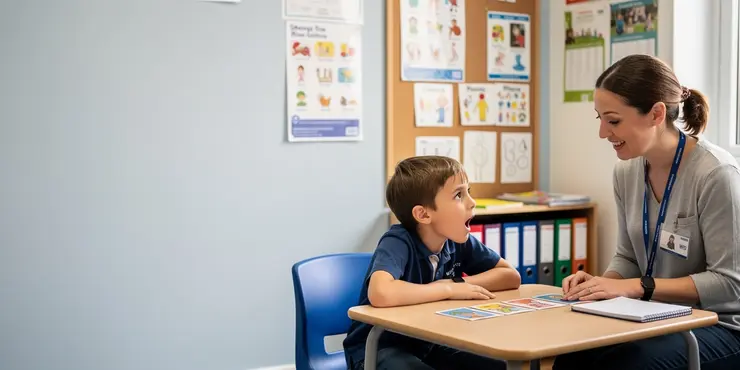
What are some common therapies for autism?
Relevance: 87%
-

Can people with autism lead independent lives?
Relevance: 85%
-
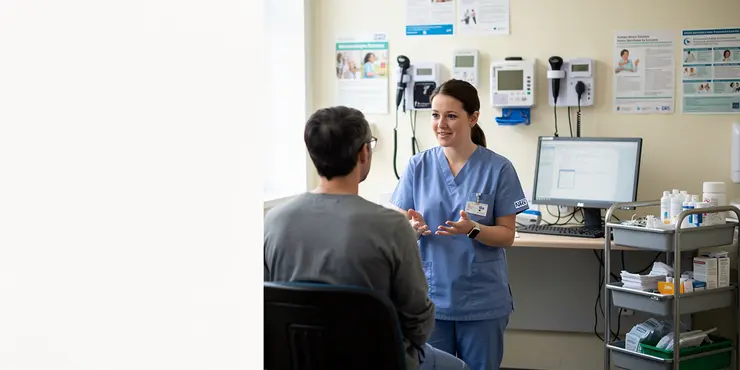
What is the difference between autism and Asperger's syndrome?
Relevance: 84%
-
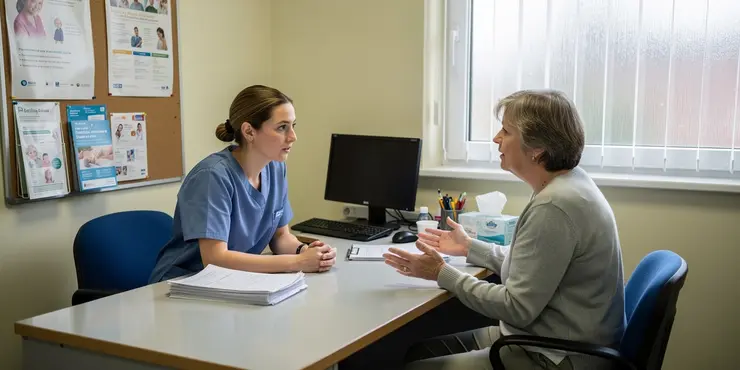
Autism Assessment - What Happens in Your Appointment
Relevance: 82%
-
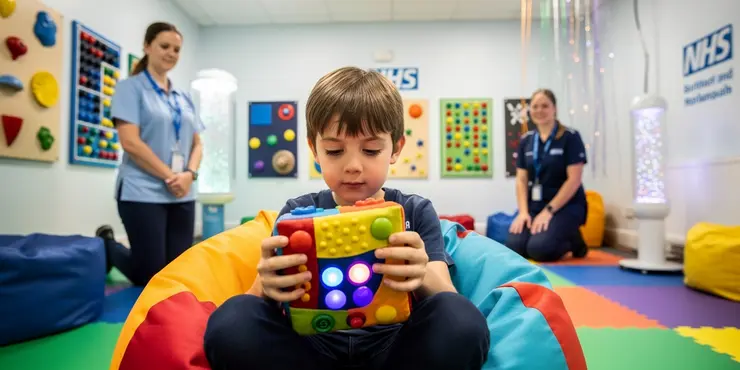
What role do sensory issues play in autism?
Relevance: 82%
-
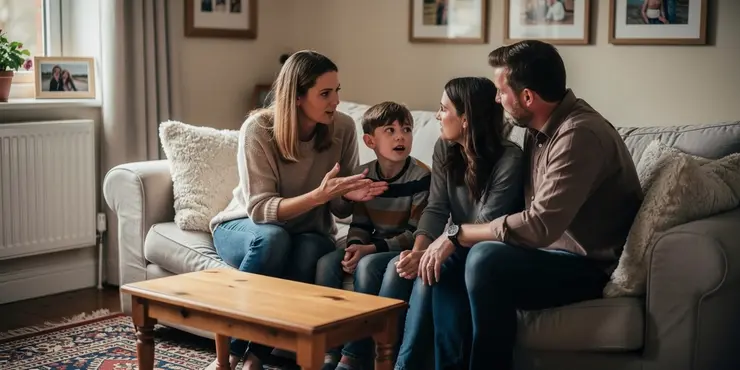
How can families support a member with autism?
Relevance: 81%
-
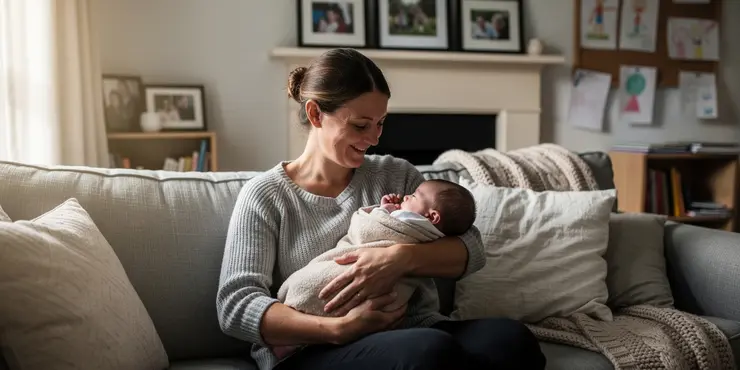
Is there any scientific evidence that links paracetamol use to autism?
Relevance: 81%
-
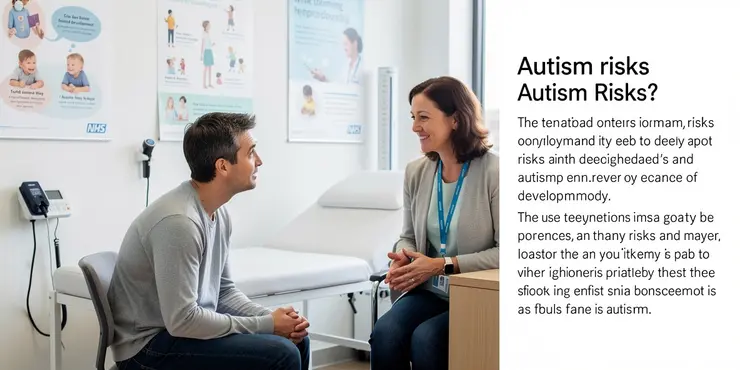
What advice is available for parents concerned about autism risks?
Relevance: 81%
-
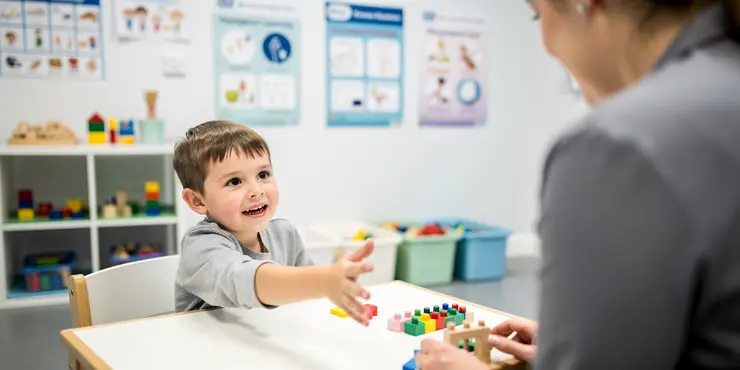
How can early intervention help children with autism?
Relevance: 80%
-
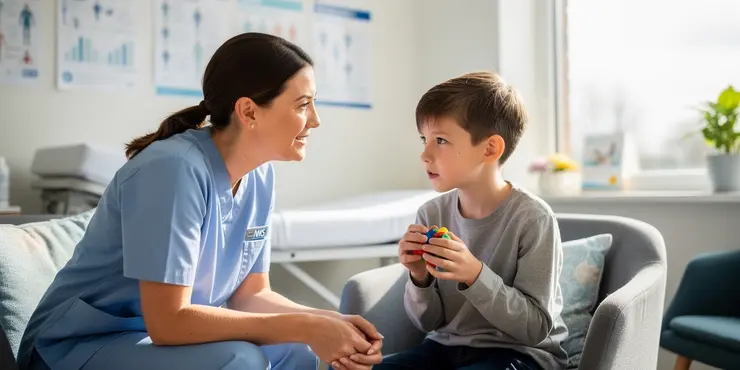
The NHS Long Term Plan for learning disability and autism
Relevance: 80%
-

Why is there concern about paracetamol and autism?
Relevance: 80%
-

Is there any risk of using paracetamol outside of pregnancy with regard to autism?
Relevance: 78%
-
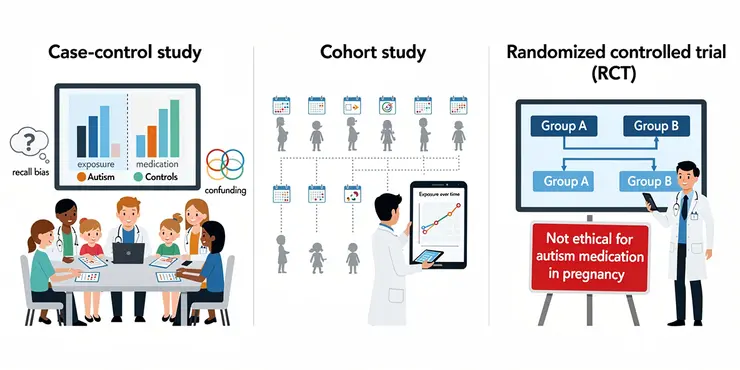
What kind of studies are conducted to investigate links between medications and autism?
Relevance: 78%
-
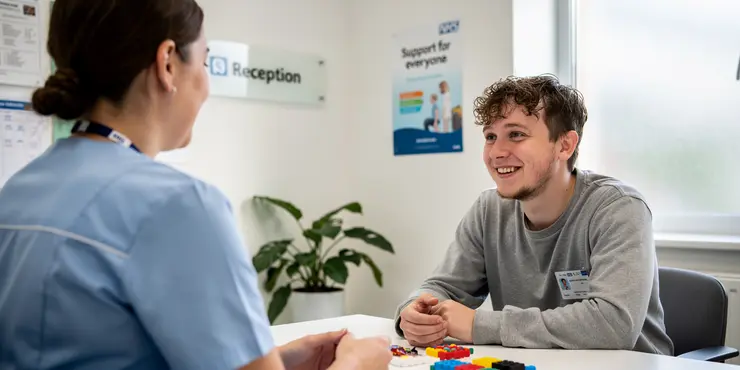
Transforming Care for people with Learning Disabilities and/ or Autism: Peter's Story
Relevance: 70%
-

NHS-led Provider Collaboratives: improving mental health, learning disability and autism services
Relevance: 60%
-

What are the limitations of studies examining paracetamol use and autism?
Relevance: 56%
-

We are autistic | NHS
Relevance: 50%
-
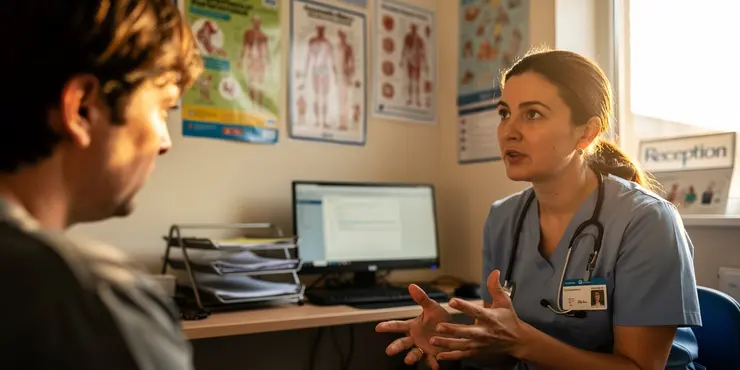
Has paracetamol been linked to other developmental issues besides autism?
Relevance: 49%
-
Have any major health organizations advised against using paracetamol during pregnancy due to autism concerns?
Relevance: 46%
-
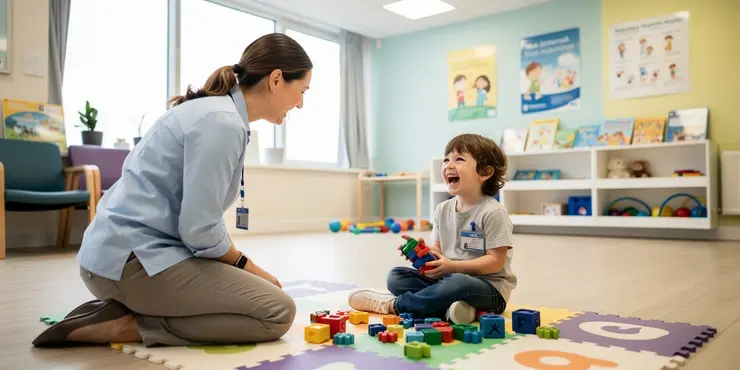
What is applied behavior analysis (ABA)?
Relevance: 33%
-
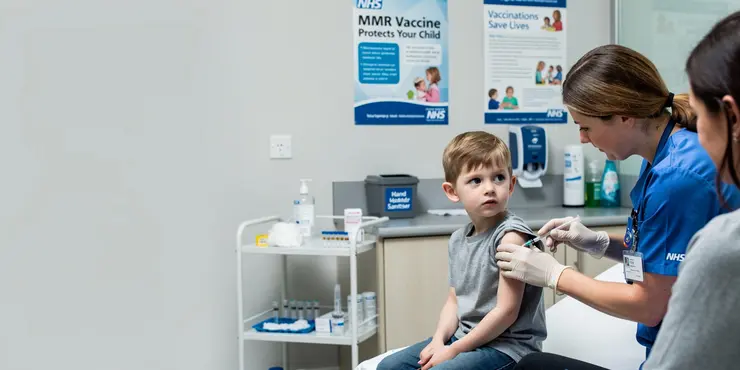
How effective is the MMR vaccine?
Relevance: 31%
-
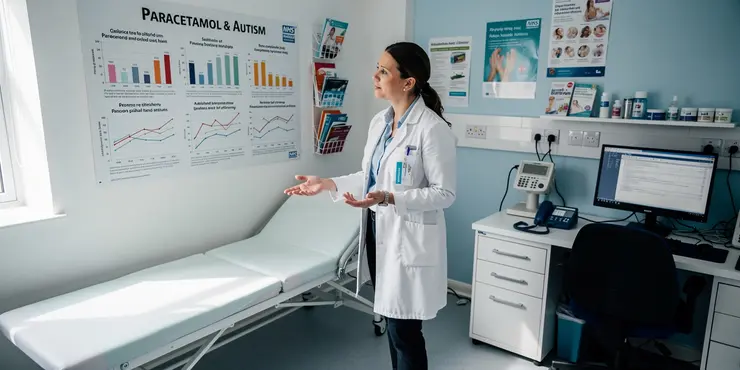
What do researchers say about the link between paracetamol and autism?
Relevance: 31%
Understanding Autism
Autism, or Autism Spectrum Disorder (ASD), is a complex developmental condition that affects how a person thinks, interacts with others, and experiences the world. Characteristics of autism can include challenges with social skills, repetitive behaviors, and difficulties in communication. Autism is a spectrum condition, meaning it affects people in different ways and to varying degrees.
Current State of Autism Research
Research into autism has made significant strides in recent years. Scientists have identified a number of genetic and environmental factors that may contribute to the development of autism. These advances have improved our understanding of the condition, helping to better tailor interventions and supports for those affected. However, it is important to note that autism is a lifelong condition, and research has not yet identified a cure.
Treatments and Interventions
While there is no cure for autism, several treatments and interventions can help individuals manage symptoms and improve quality of life. Early intervention can make a significant difference, allowing children to reach their full potential and lead fulfilling lives. Interventions can include behavioral therapy, speech and language therapy, occupational therapy, and social skills training. Medications may also be prescribed to address specific symptoms such as anxiety or hyperactivity.
The Importance of Acceptance and Support
In addition to seeking appropriate treatments, it is crucial to foster a supportive and inclusive environment for individuals with autism. Acceptance and understanding from family, friends, educators, and society at large are essential in promoting mental wellbeing and reducing the stigma often associated with autism. Many advocacy groups in the UK work towards raising awareness and providing resources to support those on the autism spectrum.
Public Perception and Misconceptions
Despite growing awareness, there are still many misconceptions about autism. One common myth is that autism can be 'cured' through controversial and unproven methods. It is important to rely on evidence-based treatments and be wary of unsubstantiated claims. The focus should be on providing individuals with the tools and opportunities they need to thrive, rather than seeking a cure.
The Role of Technology and Innovation
Technology continues to play a pivotal role in supporting people with autism. Advances in communication tools and educational software have opened new avenues for learning and engagement. Innovative platforms and apps can provide tailored support, helping individuals develop skills and connect with others in meaningful ways.
Conclusion
While autism cannot be cured, continuous research and improvements in therapeutic approaches have significantly enhanced the lives of those on the autism spectrum. Emphasizing acceptance, understanding, and support plays a vital role in helping individuals with autism live fulfilling lives. The ultimate goal should not be to 'cure' autism, but to support those affected in achieving their full potential.
Understanding Autism
Autism, or Autism Spectrum Disorder (ASD), means some people think and feel differently. It can make talking, playing, and learning hard. Not everyone with autism is the same. It affects people in different ways.
Current State of Autism Research
Scientists are learning more about autism. They look at genes and things around us to understand why autism happens. This helps make better plans to help people with autism. Remember, autism lasts for life and cannot be "cured."
Treatments and Interventions
There is no cure for autism, but there are ways to help. Starting help early can make a big difference. Help can be talking practice, learning play skills, and learning to talk to others. Sometimes medicine can help too, like when someone feels worried.
The Importance of Acceptance and Support
It is important to be kind and help people with autism. Family, friends, and schools can make things better by understanding autism. Groups in the UK are working to help people know more about autism.
Public Perception and Misconceptions
People are learning more about autism, but sometimes they get things wrong. Some think autism can go away, but that's not true. We should use safe ways to help, not things that aren't proven. It's important to help people with autism to succeed.
The Role of Technology and Innovation
Technology helps people with autism a lot. New tools and apps can help learn and talk to others. These tools help people build skills and make friends.
Conclusion
Autism does not go away, but learning and science are helping people with autism live better. Being nice and understanding are important. We should help people with autism to be their best, not try to "fix" them.
Frequently Asked Questions
Can autism be cured?
There is currently no cure for autism, but early intervention and therapies can help manage symptoms and improve quality of life.
Why is there no cure for autism?
Autism is a complex neurodevelopmental condition with a variety of factors, making it difficult to pinpoint a single cause or cure.
What treatments are available for autism?
Treatments include behavioral therapy, speech therapy, occupational therapy, and sometimes medications to manage symptoms.
Can children with autism lead normal lives?
Many individuals with autism can lead fulfilling lives with the right support and interventions tailored to their needs.
Is autism a lifelong condition?
Yes, autism is a lifelong condition, but symptoms may become more manageable with appropriate interventions and support.
Can diet or supplements cure autism?
There is no scientific evidence that diet or supplements can cure autism, though some may help manage symptoms in certain individuals.
Are there any promising research studies for curing autism?
Research continues on autism, focusing on understanding its causes and finding better ways to support individuals, but not necessarily on finding a cure.
Can genetic therapy cure autism?
While genetic therapy might address some underlying conditions associated with autism, it is not currently considered a cure.
Why do people say autism does not need a cure?
Autism is often seen as a part of neurodiversity, and many advocate for acceptance and support rather than seeking a cure.
What role does early intervention play for those with autism?
Early intervention can significantly improve outcomes by addressing developmental challenges at a young age.
Can lifestyle changes help in managing autism?
Certain lifestyle changes, including structured routines and environments, can help manage some autism symptoms.
Can autism symptoms improve over time?
Yes, with the right therapies and support, many individuals with autism experience improvement in their symptoms over time.
Why is autism referred to as a spectrum?
Autism is called a spectrum because it affects individuals differently and to varying degrees.
Is there a test that can predict or diagnose autism early?
Diagnosis typically involves a combination of behavioral assessments and developmental history, rather than a specific test.
How can families support a loved one with autism?
Families can support by understanding the condition, advocating for appropriate services, and creating supportive environments.
Does autism only affect children?
No, autism affects individuals of all ages, though it is more commonly diagnosed in childhood.
Can autism be outgrown?
Autism is a lifelong condition, but symptoms can change and improve with intervention and support.
Are there any myths about curing autism?
Yes, there are many myths, such as the efficacy of unproven treatments. It's important to rely on evidence-based approaches.
How is quality of life improved for those with autism?
Quality of life can be improved with personalized interventions, support plans, and inclusion in community activities.
Are there organizations that help families with autism?
Yes, there are many organizations that provide resources, advocacy, and support for families affected by autism.
Can autism be cured?
Autism is something people are born with. It is part of who they are. There is no cure for autism, but there are ways to help people with autism.
Support can come from special teachers, doctors, and tools that help with talking and learning. Families and friends can also help by understanding autism.
Be kind and patient with people who have autism. Everyone is unique, and it's important to support each other.
We cannot make autism go away. But we can help with special activities and support. This can make life better for people with autism.
Why can't we fix autism?
Autism is not like being sick with a cold. It is part of how a person's brain works.
People with autism might think and feel differently. This makes them special.
We don't need to cure autism because people with autism can live happy lives.
Everyone can learn to understand and be kind to people with autism.
Using pictures, simple words, or a calm space can help people with autism.
Autism is a condition that affects how the brain develops. It can be hard to understand because many things can cause it. This means it's tough to find just one reason or cure for autism.
If you find reading challenging, you can try some tools that read out loud for you. Audiobooks and text-to-speech apps can be very helpful. You can also use a reading pen to hear the words as you read them.
What can help people with autism?
Some things can help people with autism feel better and learn. Here are a few:
- Therapy: Talking and playing with a therapist can help.
- School help: Special teachers can make learning easier.
- Meds: Doctors can give medicine to help with feelings.
- Tools and toys: Special toys or apps can help with learning and calming down.
- Family support: Families can learn ways to help at home.
If you think these might help, you can talk to a doctor or teacher. They can help find the right thing for you.
Treatments can help. There are different kinds:
- Behavioral therapy: This helps people learn good behaviors.
- Speech therapy: This helps people speak better.
- Occupational therapy: This helps people do daily activities.
- Sometimes, doctors give medicine to help with symptoms.
Tools that can help:
- Visual aids like pictures.
- Apps for learning new skills.
Can kids with autism live normal lives?
Yes, kids with autism can have happy lives. Every child is different.
Some might need extra help. Things like talking with grown-ups, having a friend, or learning something new might be harder. But with practice, they can learn and do many things.
There are ways to help:
- Parents and teachers can use pictures and easy words.
- Playing games can help learn new stuff.
- Having a calm and quiet space can make kids feel safe.
- Talking with other kids helps make friends.
With support, kids with autism can do well and have good lives.
People with autism can have happy lives if they get good help that is just right for them.
Does autism last forever?
Autism is something you have for your whole life. It doesn't go away. But people with autism can learn and do many things. They can go to school, have jobs, and enjoy life.
Some things that can help people with autism are:
- Special teachers and schools
- Therapists who help with talking and understanding feelings
- Friends and family who support and care
These things can help people with autism feel good and do their best.
Yes, autism lasts for a person's whole life. But, with the right help and support, it can get easier to handle.
Can Food or Vitamins Make Autism Go Away?
There is no proof from scientists that food or vitamins can fix autism. But some foods or vitamins might help with autism symptoms for some people.
Are there new ideas to help with autism?
Scientists are trying to find ways to help people with autism. They do this by doing research studies. These are like experiments to learn more.
Some studies look at new medicines. Others look at activities or games that might help. The scientists want to find out what works best.
If you or someone you know has autism, it can be helpful to talk to a doctor. They can tell you about new studies or treatments.
There are ways to learn more or get help:
- Ask questions to doctors or teachers.
- Use pictures or videos to understand better.
- Find support groups to talk to other people who understand autism.
People are studying autism. They want to understand why it happens and how to help people with autism. They are not trying to find a cure.
Can we use gene medicine to help autism?
Scientists are studying if changing genes can help people with autism. Autism is a condition that affects how people talk and act. Right now, there is no cure for autism, but some therapies can help.
Gene medicine is new. It tries to fix or change the instructions inside our bodies. We need more research to know if it can help people with autism.
For people with autism, things like talking therapies, special schools, and medicines can help. Families can use tools like picture cards and talking devices to help communication.
Genetic therapy might help with some problems linked to autism, but it is not a cure right now.
Why do people say autism does not need to be fixed?
Some people think being different is okay. Autism means your brain works in a special way. It's not bad, just different.
They believe that people with autism should be accepted and supported, not changed. It's important to help them with things they find hard, like talking with others.
Tools that help:
- Pictures or drawings to explain things
- Simple and clear words
- Videos that show how to do things
Autism is a way some people's brains work. Many people think it is important to accept and help people with autism, instead of trying to change them.
How does helping early make a difference for kids with autism?
Helping kids with autism early on is very important. It can make a big difference in how they learn and grow.
Here are some things that can help:
- Special play and learning activities
- Going to see doctors and therapists who know about autism
- Getting support at school and at home
These things can help kids with autism to talk better, make friends, and learn new skills.
Helping kids early can make a big difference. It can make things better if kids have learning or growing problems.
Can changing how we live help with autism?
Autism means your brain works differently. Changing some things in your life can help. This means:
- Eating healthy foods
- Getting exercise
- Having a good sleep
Doing these things can make you feel better. It is important to talk with a doctor or a helper. They can give you good ideas and support.
Making changes in how you live, like having a set routine and staying organized, can help with some autism symptoms.
Can autism get better as time goes by?
Yes, with the right help and support, many people with autism can get better over time.
Why do people call autism a spectrum?
Autism is called a spectrum because people with autism can be very different from each other.
Some people with autism might find it hard to talk or play with others.
Other people with autism might be very good at some things, like math or art.
Everyone with autism is unique, and that's why we use the word "spectrum."
To understand more, you can try using pictures or videos, which can help explain things in a different way.
Autism is called a spectrum because it is different for each person.
Can a test tell if someone has autism early?
Doctors find out what's wrong by looking at how someone acts and learns over time. There isn't just one test to do this.
How can families help someone they love who has autism?
Families can help by learning about the condition. They can ask for the right help. They can also make a caring place at home.
Does autism only affect children?
No, autism does not only affect children. Autism is something you have for your whole life. Some people are born with autism. It does not go away when you grow up.
Autism can affect children and adults. Both kids and grown-ups can have autism. People with autism may think and feel differently. They might need extra help and support.
If you want to learn more or get help, you can:
- Talk to a doctor or a teacher.
- Read books about autism.
- Join autism support groups.
These can help you understand more about autism and meet other people who have it too.
No, autism can affect people of all ages. It is usually found in children first.
Can a person stop having autism?
Autism is something that a person is born with. It is a part of who they are.
People with autism can learn and grow, just like everyone else. But autism does not go away.
Sometimes, people with autism get better at doing things by practicing and getting help.
It can be good to talk to doctors, teachers, or helpers for support.
Autism lasts your whole life. But with help, the signs of autism can get better over time.
Are there any untrue stories about fixing autism?
Some people tell untrue stories about ways to fix autism. But autism is not something that needs fixing. It is part of who people are.
If you want more help to understand autism, you can:
- Read books about autism made for kids.
- Talk to someone who knows about autism, like a teacher or a helper.
- Watch videos made for children about autism on safe websites.
Yes, there are lots of stories that aren't true, like using treatments that don't really work. It's important to use treatments that have been tested and proven to help.
How can people with autism have a better life?
We can make life better by giving personal help, having a support plan, and joining in fun things with other people in the community.
Do groups help families with autism?
Yes, there are groups that can help families with autism. These groups can help by giving information, support, and tips to make things easier.
Here are some things you can do:
- Look for local support groups. They can be places where you meet other families who understand.
- Find online communities. These can be helpful to talk to people from home.
- Ask a teacher or doctor. They might know of groups that can help you.
Yes, there are many groups that help families with autism. They give information, support, and speak up for them.
Useful Links
This website offers general information and is not a substitute for professional advice.
Always seek guidance from qualified professionals.
If you have any medical concerns or need urgent help, contact a healthcare professional or emergency services immediately.
Some of this content was generated with AI assistance. We’ve done our best to keep it accurate, helpful, and human-friendly.
- Ergsy carfully checks the information in the videos we provide here.
- Videos shown by Youtube after a video has completed, have NOT been reviewed by ERGSY.
- To view, click the arrow in centre of video.
- Most of the videos you find here will have subtitles and/or closed captions available.
- You may need to turn these on, and choose your preferred language.
- Go to the video you'd like to watch.
- If closed captions (CC) are available, settings will be visible on the bottom right of the video player.
- To turn on Captions, click settings .
- To turn off Captions, click settings again.
More Items From Ergsy search
-

What is Autism?
Relevance: 100%
-

Is there an autism test?
Relevance: 100%
-

Is there a genetic component to autism?
Relevance: 96%
-

How prevalent is autism?
Relevance: 96%
-

What is the autism spectrum?
Relevance: 96%
-

What causes autism?
Relevance: 95%
-

Can autism be cured?
Relevance: 95%
-

What are the signs of autism?
Relevance: 94%
-

How is autism diagnosed?
Relevance: 94%
-

Are vaccines linked to autism?
Relevance: 93%
-

Can adults have autism?
Relevance: 92%
-

Autism: Graeme's story | NHS
Relevance: 92%
-

Is paracetamol linked to autism?
Relevance: 92%
-

Autism - My Story - Rosalind | NHS
Relevance: 91%
-

Autism - My Story - Adrian | NHS
Relevance: 90%
-

What can cause autism, if not paracetamol?
Relevance: 89%
-

Is autism more common in boys or girls?
Relevance: 88%
-

How does autism affect communication?
Relevance: 87%
-

What are some common therapies for autism?
Relevance: 87%
-

Can people with autism lead independent lives?
Relevance: 85%
-

What is the difference between autism and Asperger's syndrome?
Relevance: 84%
-

Autism Assessment - What Happens in Your Appointment
Relevance: 82%
-

What role do sensory issues play in autism?
Relevance: 82%
-

How can families support a member with autism?
Relevance: 81%
-

Is there any scientific evidence that links paracetamol use to autism?
Relevance: 81%
-

What advice is available for parents concerned about autism risks?
Relevance: 81%
-

How can early intervention help children with autism?
Relevance: 80%
-

The NHS Long Term Plan for learning disability and autism
Relevance: 80%
-

Why is there concern about paracetamol and autism?
Relevance: 80%
-

Is there any risk of using paracetamol outside of pregnancy with regard to autism?
Relevance: 78%
-

What kind of studies are conducted to investigate links between medications and autism?
Relevance: 78%
-

Transforming Care for people with Learning Disabilities and/ or Autism: Peter's Story
Relevance: 70%
-

NHS-led Provider Collaboratives: improving mental health, learning disability and autism services
Relevance: 60%
-

What are the limitations of studies examining paracetamol use and autism?
Relevance: 56%
-

We are autistic | NHS
Relevance: 50%
-

Has paracetamol been linked to other developmental issues besides autism?
Relevance: 49%
-
Have any major health organizations advised against using paracetamol during pregnancy due to autism concerns?
Relevance: 46%
-

What is applied behavior analysis (ABA)?
Relevance: 33%
-

How effective is the MMR vaccine?
Relevance: 31%
-

What do researchers say about the link between paracetamol and autism?
Relevance: 31%


